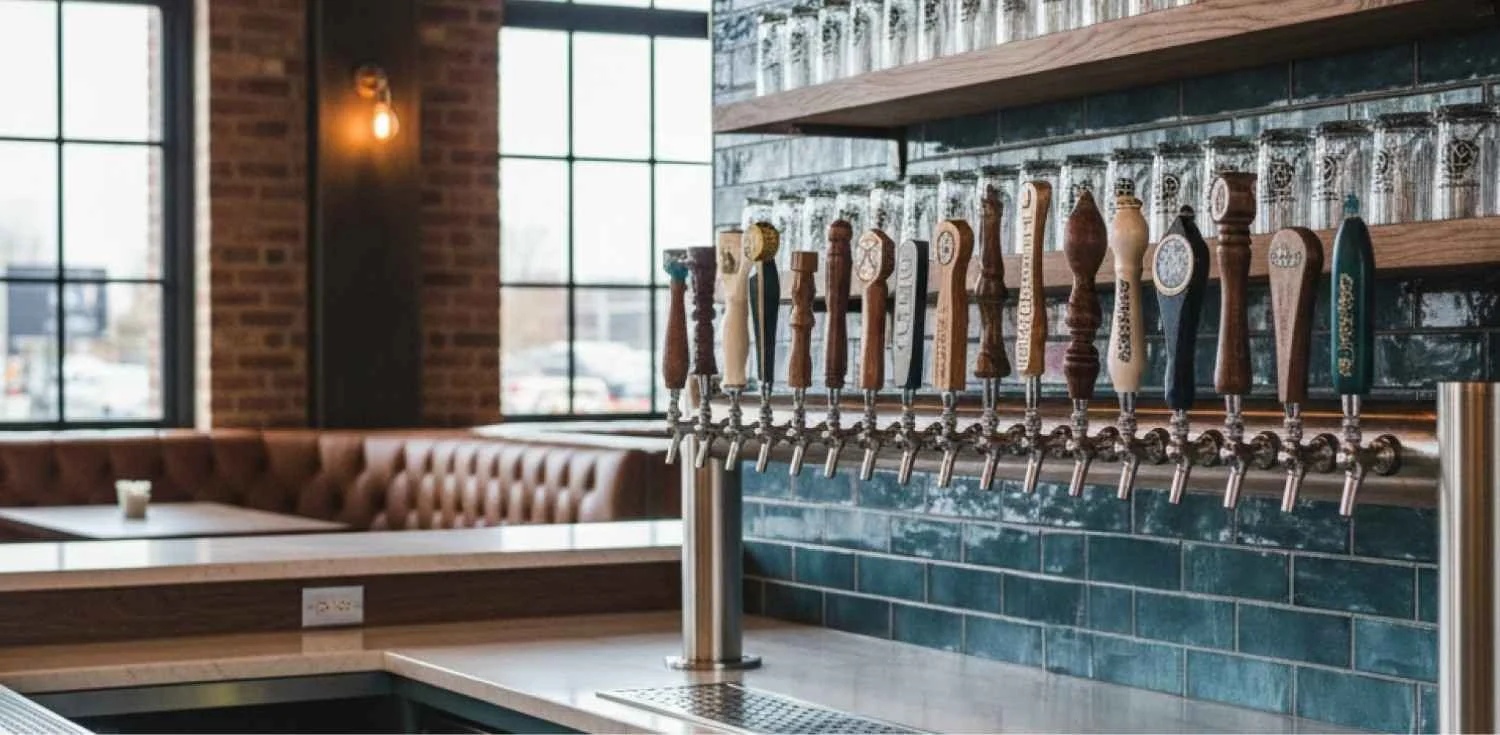How to Open a Successful Bar
Opening a bar can be an exciting and rewarding venture, offering the opportunity to create a social hub where people gather, relax, and enjoy themselves. The allure lies not only in the potential profits but also in the chance to express creativity through your bar concept, menu, and atmosphere. However, running a successful bar comes with its challenges. From fierce competition and fluctuating customer trends to strict regulations and long hours, many factors can make or break a bar’s success.
To navigate these challenges, careful planning, effective management, and a clear strategy are essential. A well-thought-out business plan sets the foundation for success, helping you define your goals, target audience, and financial projections. Strong management ensures smooth daily operations, maintains staff efficiency, and delivers a consistent customer experience. Partnering with GS Draft System Solutions, which provides turnkey commercial beer systems and nationwide support for bars, restaurants, and entertainment venues, can also give your business an edge by ensuring reliable beverage dispensing and superior equipment. By approaching bar ownership with both creativity and strategic planning, you can increase your chances of building a thriving and sustainable business.
Business Plan
A solid business plan is the foundation of any successful bar. It serves as a roadmap, guiding your decisions from concept development to daily operations. Without a clear plan, it is easy to underestimate costs, misjudge customer preferences, or encounter unexpected challenges that can threaten your business. A detailed business plan not only helps you stay organized but also makes it easier to secure financing from investors or lenders.
Key elements to include in your bar’s business plan are:
- Target Market: Identify the customers you want to attract, including age group, interests, and spending habits. Understanding your audience will help shape your concept, menu, and marketing strategy.
- Location: Choose a location that aligns with your target market, offers high visibility, and has adequate foot traffic. Consider factors like competition, accessibility, and rent costs.
- Finances: Include start-up costs, projected revenues, operating expenses, and a break-even analysis. Planning your finances carefully helps ensure long-term sustainability.
- Goals: Set short-term and long-term objectives for your bar. These goals should cover growth, profitability, customer satisfaction, and brand recognition.
By addressing these elements in your business plan, you create a clear vision for your bar and increase the likelihood of achieving lasting success.
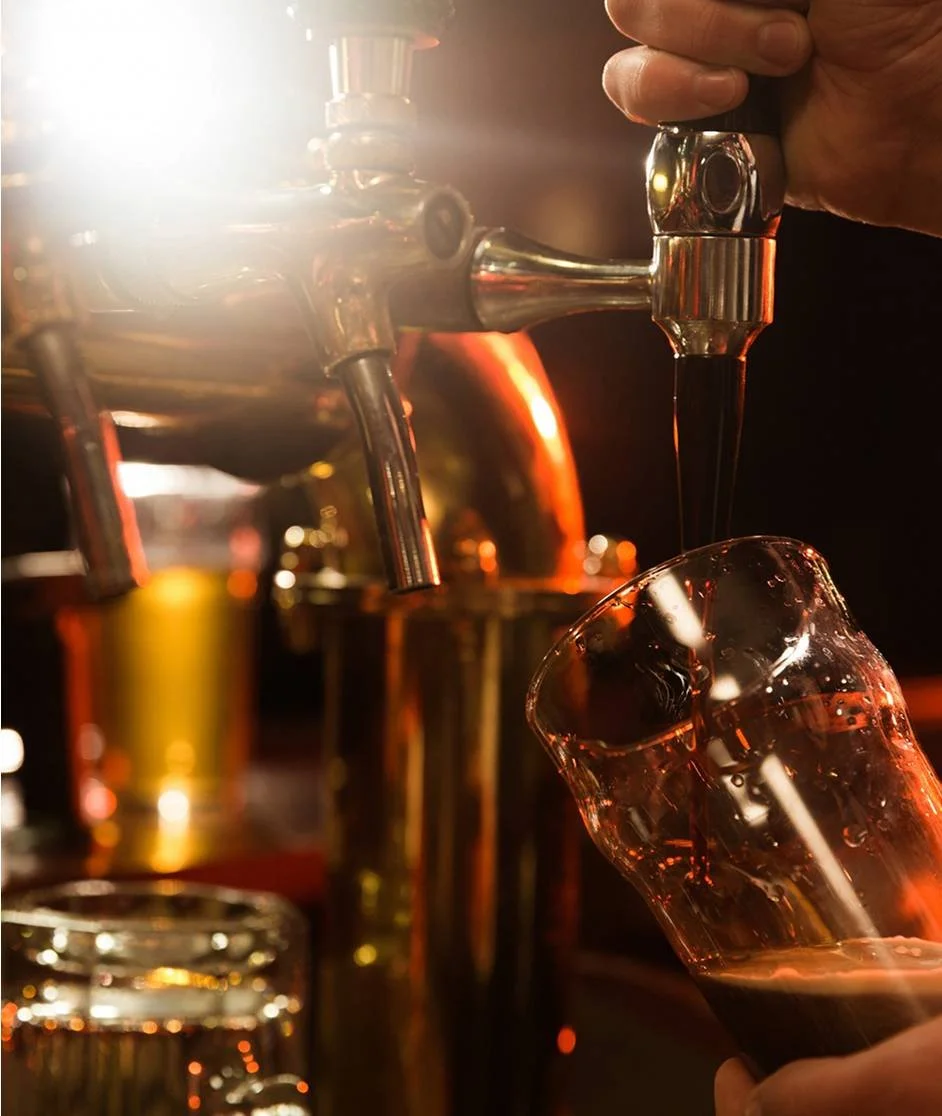
Bar Concept
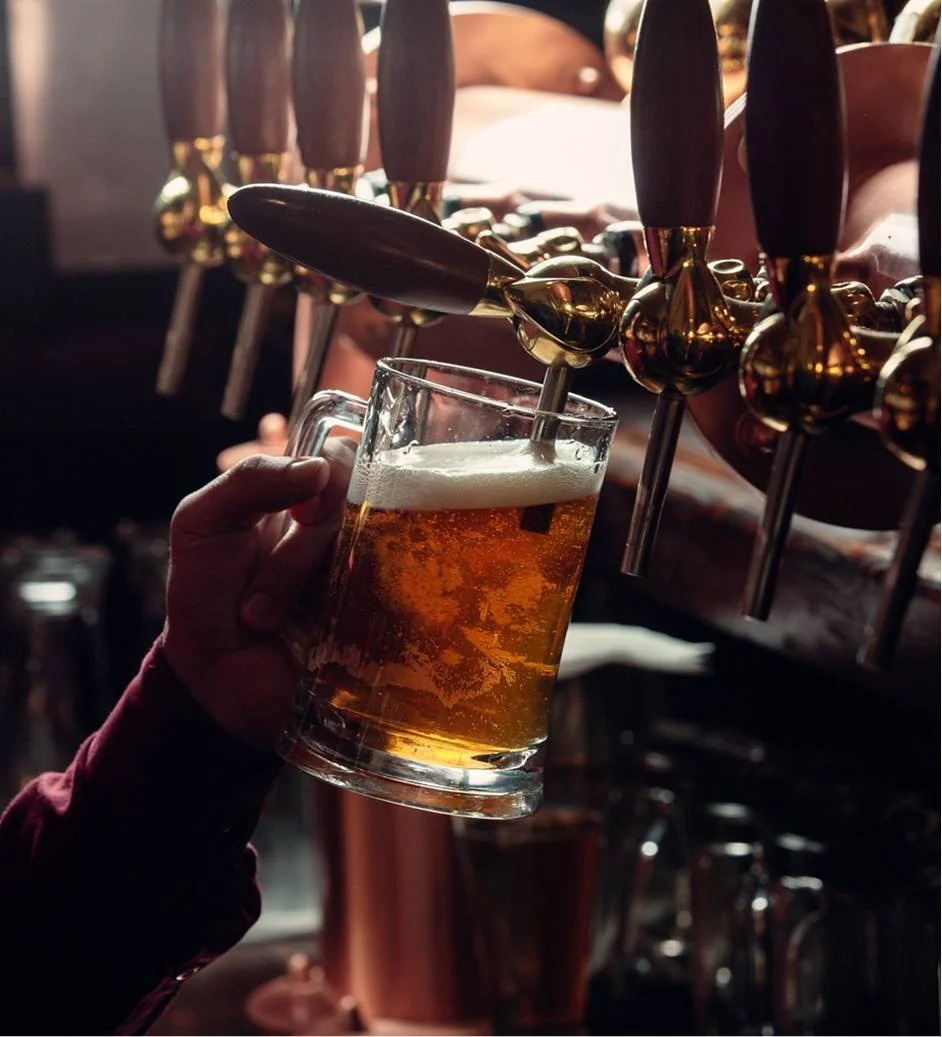
Defining a clear bar concept is essential for creating a unique identity that resonates with your target audience. Your concept encompasses the overall theme, style, ambiance, and personality of your bar. It influences everything from interior design and music selection to the menu and marketing approach. A well-defined concept ensures that every element of your bar works together to create a memorable experience for customers.
A strong bar concept can help differentiate your business from competitors and attract loyal patrons. Key aspects to consider when developing your concept include:
- Theme and Style: Decide whether your bar will be modern, classic, speakeasy, sports-focused, cocktail-driven, or niche-themed. The theme should align with your target audience’s preferences.
- Target Audience: Understand the demographic you want to attract, including their lifestyle, spending habits, and expectations for entertainment or service.
- Atmosphere: Consider lighting, décor, music, and seating arrangements to create the desired mood and experience.
- Signature Offerings: Develop specialty drinks, cocktails, or food items that reinforce your concept and give customers a reason to choose your bar over others.
By carefully defining your bar concept, you set the foundation for a distinctive and appealing establishment that stands out in a competitive market.
Bar Business Plan
A bar business plan goes beyond a general business plan by focusing on the specific financial and operational needs of running a bar. It provides a detailed roadmap for how your bar will operate, generate revenue, and grow over time. This level of planning helps you anticipate challenges, allocate resources efficiently, and make informed decisions that support long-term success.
Key components of a bar business plan include:
Start-Up Costs: Outline all expenses required to launch your bar, including lease deposits, renovations, furniture, equipment, licenses, initial inventory, and marketing. Knowing your start-up costs helps you determine how much funding you will need.
Revenue Projections: Estimate your expected sales based on factors such as target audience, pricing, and seasonal trends. Include projected income from drinks, food, events, and other revenue streams.
Operating Expenses: Plan for ongoing costs like staff wages, utilities, inventory replenishment, insurance, and maintenance. Accurate expense projections ensure your bar remains financially sustainable.
Marketing Strategy: Develop a plan to attract and retain customers through social media, promotions, events, partnerships, and local advertising. A strong marketing strategy increases visibility and builds a loyal customer base.
A comprehensive bar business plan provides clarity and direction, making it easier to secure funding, manage operations effectively, and position your bar for success in a competitive industry.
Bar Licenses and Permits
Obtaining the proper licenses and permits is a critical step in opening a bar. Operating without the necessary approvals can lead to fines, legal issues, or even closure. Each license or permit ensures that your bar complies with health, safety, and business regulations while protecting your customers and employees.
Essential licenses and permits to consider include:
Liquor License: Required to legally sell alcoholic beverages. The type of license needed varies depending on whether you serve beer, wine, spirits, or a combination.
Health Permits: Ensures your bar meets sanitation and food safety standards if you serve food or prepare drinks on-site.
Signage Permits: Some municipalities require approval for exterior signage to ensure it meets size, lighting, and zoning regulations.
Business License: Authorizes you to operate legally within your city or county.
Entertainment License: Needed if you plan to host live music, DJs, or other performances.
To ensure compliance with local and state regulations:
Research Requirements: Check with your city, county, and state agencies to identify all necessary licenses.
Apply Early: Licensing processes can take weeks or months, so start applications well in advance.
Maintain Records: Keep all licenses up to date and readily available for inspections.
Stay Informed: Regulations may change, so monitor updates to ensure continued compliance.
Securing the correct licenses and permits is essential to running a legitimate and successful bar while avoiding costly legal issues.
Business Structure
Choosing the right business structure is a crucial decision when opening a bar. Your choice affects liability, taxation, management responsibilities, and even your ability to secure financing. Selecting the structure that best fits your goals and risk tolerance can protect your personal assets and streamline operations.
Common business structures for bars include:
-
Limited Liability Company (LLC):
- Protects personal assets from business debts and liabilities.
- Offers flexible management and pass-through taxation.
- Requires less formal paperwork than a corporation.
-
Partnership:
- Simple to establish with two or more owners sharing profits and responsibilities.
- Pass-through taxation avoids double taxation.
- Partners are personally liable for business debts and legal issues.
-
Corporation:
- Offers the strongest protection against personal liability.
- Can raise capital by issuing shares.
- Subject to more regulations and potentially double taxation depending on the type (C-corp vs. S-corp).
Evaluating the pros and cons of each structure helps bar owners make informed decisions that align with their financial goals, management style, and risk tolerance. Consulting a legal or financial professional is recommended to choose the structure that best supports your bar’s success.
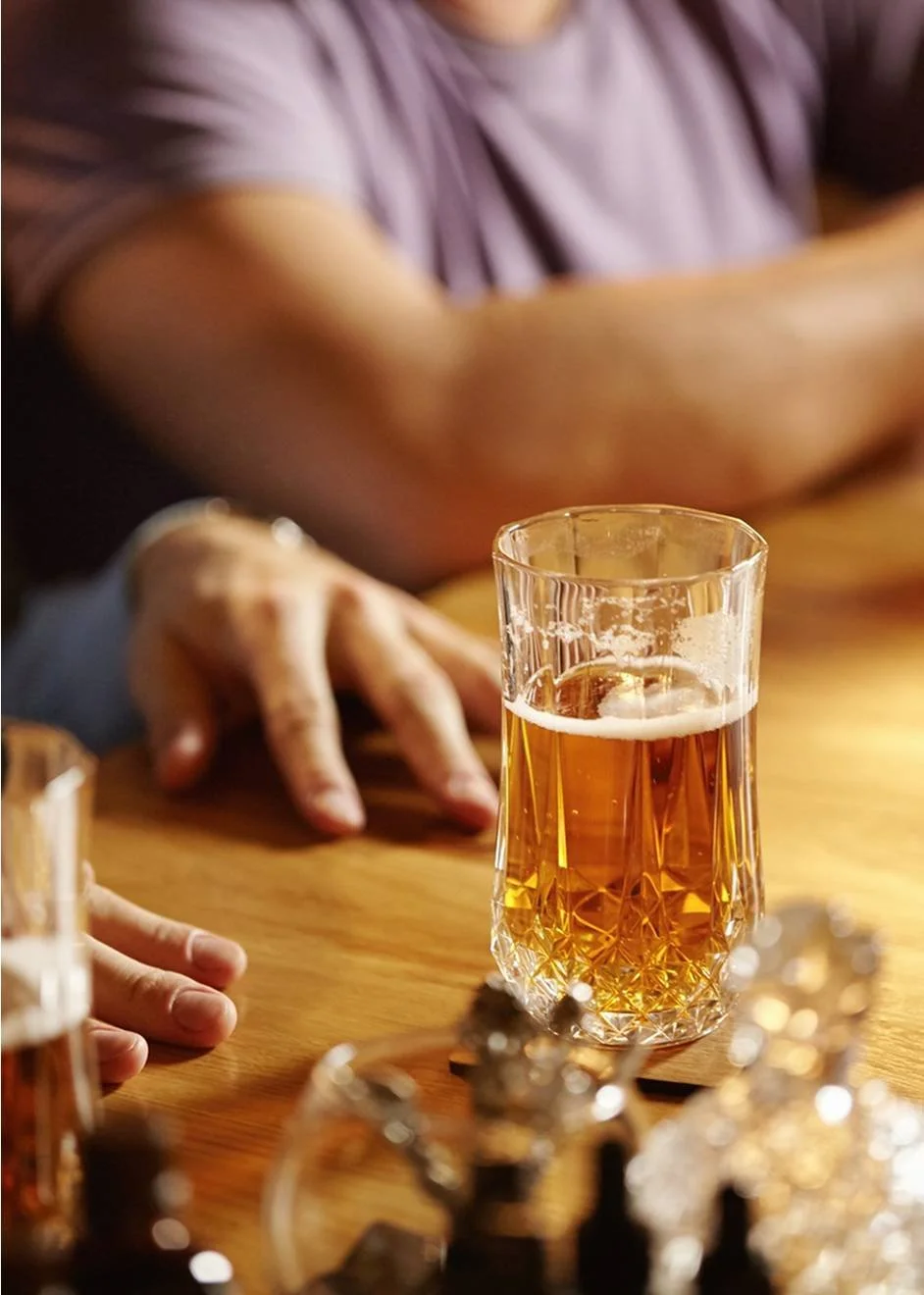
Bar Menu
Crafting a bar menu is an essential part of defining your bar’s identity and attracting customers. A well-designed menu should reflect your concept, appeal to your target audience, and create a memorable experience. It is not only about the drinks you serve but also about how your offerings complement the overall atmosphere of your bar.
Key considerations for designing a bar menu include:
Alignment with Concept: Ensure the drinks and any food offerings match your bar’s theme and style. For example, a speakeasy might focus on craft cocktails, while a sports bar may emphasize beer and casual appetizers.
Classic Drinks: Offer popular staples that customers expect, such as martinis, margaritas, or local beers. These provide reliability and satisfy a wide range of tastes.
Signature Cocktails: Create unique drinks that set your bar apart and encourage repeat visits. Signature cocktails can become a defining feature of your establishment.
Food Pairings: If serving food, select menu items that complement your drink offerings. This can enhance the customer experience and increase revenue.
Menu Design: Use clear descriptions, appealing visuals, and organized sections to make the menu easy to navigate and visually engaging.
A thoughtfully curated bar menu not only satisfies customer preferences but also reinforces your bar’s concept, encourages higher spending, and helps build a loyal clientele.
Bar POS System
A reliable POS system is essential for running a bar efficiently. It streamlines transactions, tracks inventory, and provides detailed reports that help you make informed business decisions. A good POS system can save time, reduce errors, and improve the overall customer experience by speeding up service and ensuring accurate orders.
When selecting a POS system for your bar, consider the following features:
Sales and Transaction Management: Ability to process various payment types quickly and accurately, including credit cards, mobile payments, and tabs.
Inventory Tracking: Monitor stock levels for beverages, ingredients, and supplies in real-time to prevent shortages and overstocking.
Reporting and Analytics: Generate detailed reports on sales trends, peak hours, popular items, and employee performance to guide decision-making.
Employee Management: Track staff hours, manage schedules, and monitor performance for better operational efficiency.
Integration Capabilities: Ensure the system integrates with accounting software, online ordering platforms, or loyalty programs for seamless operations.
Ease of Use: Choose a system that is user-friendly for both staff and management to reduce training time and errors.
Investing in a robust POS system can improve efficiency, enhance customer satisfaction, and provide valuable insights that support the growth and profitability of your bar.
Bar Manager

A bar manager plays a critical role in the day-to-day success of a bar. They oversee operations, ensure staff performance, maintain quality standards, and create a positive environment for both employees and customers. A skilled manager acts as a bridge between ownership and staff, implementing strategies that drive efficiency and profitability while maintaining a welcoming atmosphere.
Key responsibilities of a bar manager include:
- Staff Supervision: Hire, train, and schedule bartenders, servers, and support staff to ensure smooth operations.
- Inventory Management: Monitor stock levels, order supplies, and control waste to maintain cost efficiency.
- Customer Service Oversight: Ensure patrons receive excellent service, handle complaints effectively, and maintain a positive reputation.
- Financial Management: Track sales, manage budgets, and identify opportunities to increase revenue and reduce expenses.
- Compliance: Ensure the bar adheres to health, safety, and licensing regulations.
- Event and Promotion Planning: Organize special events, promotions, or themed nights to attract customers and boost sales.
A competent bar manager improves operational efficiency, enhances customer satisfaction, and drives profitability, making them an essential asset to the success of any bar.
Bar Staff
Hiring and training the right bar staff is essential for delivering a consistent and enjoyable customer experience. Your team, including bartenders, servers, and support staff, represents your bar and directly impacts how patrons perceive your establishment. Investing in proper training ensures that your staff can perform their roles efficiently, handle busy periods, and maintain high standards of service.
Key considerations for managing bar staff include:
Hiring: Look for candidates with relevant experience, strong interpersonal skills, and a positive attitude. Consider personality fit with your bar’s culture and concept.
Training: Provide comprehensive training on drink preparation, menu knowledge, point-of-sale systems, and customer service standards. Ongoing training helps staff stay updated on new offerings or procedures.
Professionalism: Encourage punctuality, proper grooming, and respectful behavior toward customers and colleagues. Professionalism reinforces your bar’s reputation.
Teamwork: Foster collaboration among bartenders, servers, and support staff to ensure smooth operations and a supportive work environment.
Customer Service: Teach staff to engage with customers, handle complaints gracefully, and create a welcoming atmosphere that encourages repeat visits.
A well-trained, professional, and cohesive staff enhances the overall customer experience, increases operational efficiency, and contributes to the long-term success of your bar.
Bar Management
Effective bar management is essential for keeping daily operations running smoothly and ensuring a high-quality customer experience. Strong management involves overseeing staff, controlling inventory, maintaining schedules, and addressing issues as they arise. Consistent and organized management helps prevent mistakes, reduce waste, and create a reliable and enjoyable environment for patrons.
Key aspects of bar management include:
Daily Operations: Monitor the flow of service, ensure cleanliness and organization, and coordinate staff activities to maintain efficiency.
Inventory Control: Track stock levels, order supplies on time, and manage costs to prevent shortages or overstocking.
Scheduling: Create fair and efficient staff schedules to cover peak hours, events, and busy periods while minimizing labor costs.
Conflict Resolution: Handle customer complaints and staff disagreements promptly and professionally to maintain a positive environment.
Tips for maintaining consistency and quality in service:
Establish clear standard operating procedures for all aspects of bar operations.
Provide regular staff training to reinforce service standards and menu knowledge.
Monitor performance and give constructive feedback to encourage improvement.
Use technology such as POS systems and inventory management tools to track operations and identify trends.
Strong bar management ensures that your bar delivers a consistent, high-quality experience that keeps customers returning while optimizing operational efficiency and profitability.
Bar Owners
Bar owners play a vital role in the overall success of their establishments beyond managing finances. They are responsible for shaping the brand’s vision, building a network of industry contacts, and overseeing legal and regulatory compliance. An engaged owner sets the tone for the bar’s culture, influences operational decisions, and ensures that the business stays aligned with its long-term goals.
Key responsibilities of bar owners include:
- Brand Vision: Define the identity, concept, and values of the bar, ensuring that every aspect of the business reflects this vision.
- Networking: Build relationships with suppliers, local businesses, and industry professionals to create opportunities for collaboration, promotions, and growth.
- Legal Oversight: Ensure the bar complies with licensing requirements, health and safety regulations, and labor laws to avoid legal issues.
- Marketing and Promotion: Guide marketing strategies and promotional campaigns to attract and retain customers.
- Financial Strategy: Monitor budgets, review financial reports, and make strategic investments to support growth.
Hands-on involvement from owners can significantly impact a bar’s success. By actively participating in daily operations, engaging with staff and customers, and staying informed about industry trends, owners can foster a strong brand reputation, improve operational efficiency, and build a loyal customer base.
Opening a successful bar requires careful planning, proper licensing, skilled staff, and effective management. Along with developing a strong business plan and ensuring compliance, partnering with GS Draft System Solutions, a nationwide provider of turnkey commercial beer systems for bars, restaurants, breweries, and entertainment venues, gives new owners the reliable equipment and expert support needed to stand out. With preparation, industry guidance, and quality service, you can build a thriving bar that keeps customers coming back.
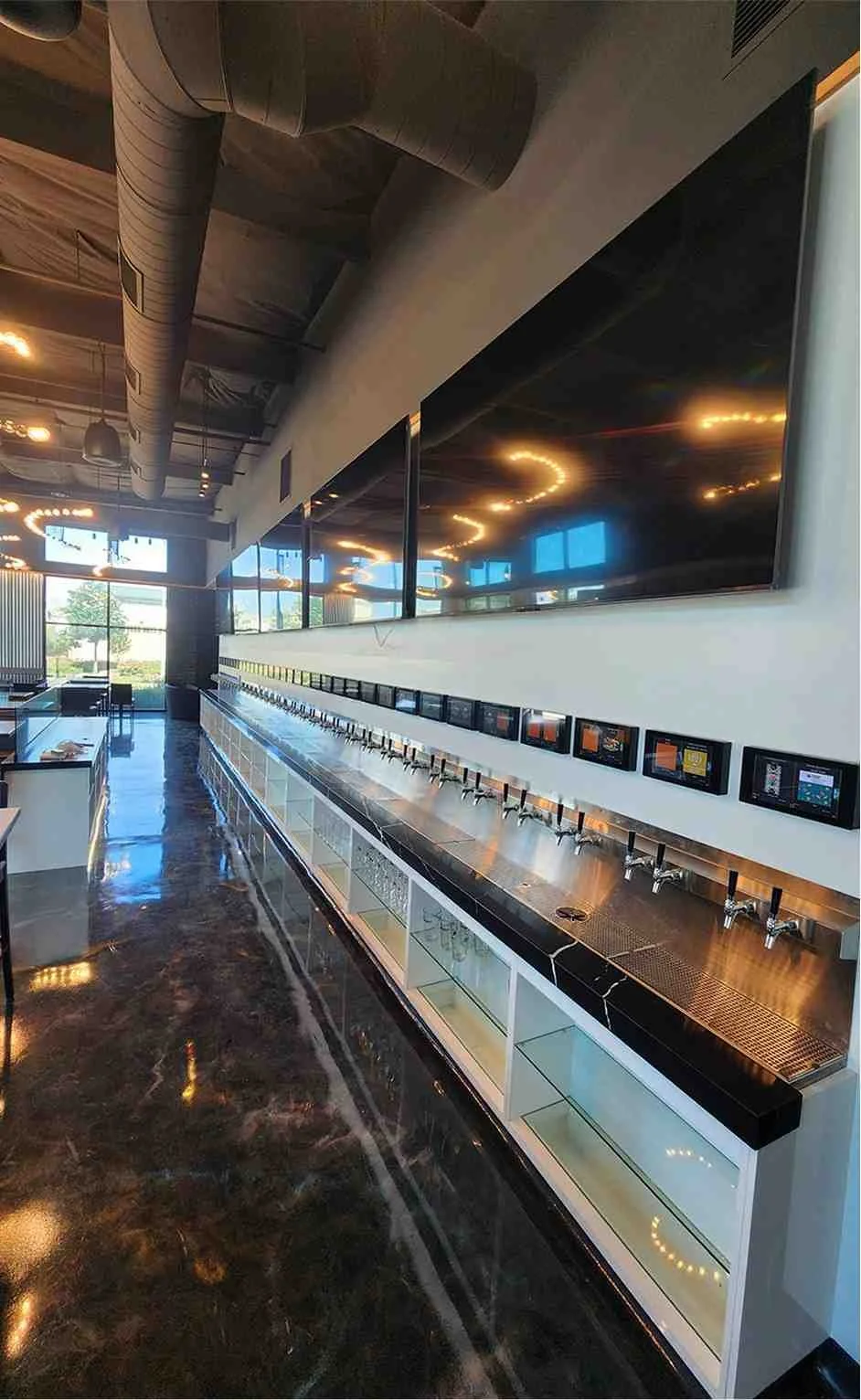
GS Draft Is Your Partner for Beverage Tap Solutions to Help Your Bar Thrive
At GS Draft System Solutions, we understand that running a successful bar means more than serving great drinks. It’s about efficiency, consistency, and creating memorable guest experiences. That’s why we design, install, and maintain self-serve systems for everything from craft beer and cocktails to cold brew coffee and kombucha. With our innovative tap solutions, you can reduce waste, streamline operations, and set your bar up for long-term success.
From initial setup to ongoing support, we provide high-quality, customized self-serve tap solutions tailored to your bar’s unique needs. Whether you are serving beer, cold brew, kombucha, or cocktails, our systems are designed to help you deliver consistency, efficiency, and an elevated guest experience.
Contact us today at (949) 421-3882 or email sales@gsdraft.com to explore self-serve installation options for coffee, kombucha, cocktails, and more.
